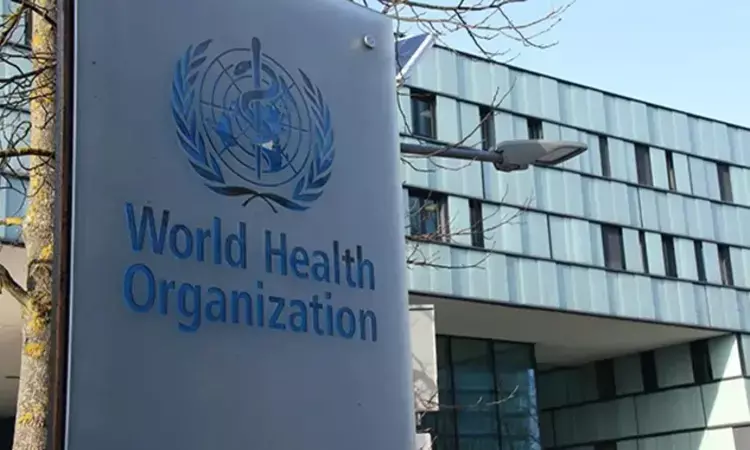- Home
- Medical news & Guidelines
- Anesthesiology
- Cardiology and CTVS
- Critical Care
- Dentistry
- Dermatology
- Diabetes and Endocrinology
- ENT
- Gastroenterology
- Medicine
- Nephrology
- Neurology
- Obstretics-Gynaecology
- Oncology
- Ophthalmology
- Orthopaedics
- Pediatrics-Neonatology
- Psychiatry
- Pulmonology
- Radiology
- Surgery
- Urology
- Laboratory Medicine
- Diet
- Nursing
- Paramedical
- Physiotherapy
- Health news
- Fact Check
- Bone Health Fact Check
- Brain Health Fact Check
- Cancer Related Fact Check
- Child Care Fact Check
- Dental and oral health fact check
- Diabetes and metabolic health fact check
- Diet and Nutrition Fact Check
- Eye and ENT Care Fact Check
- Fitness fact check
- Gut health fact check
- Heart health fact check
- Kidney health fact check
- Medical education fact check
- Men's health fact check
- Respiratory fact check
- Skin and hair care fact check
- Vaccine and Immunization fact check
- Women's health fact check
- AYUSH
- State News
- Andaman and Nicobar Islands
- Andhra Pradesh
- Arunachal Pradesh
- Assam
- Bihar
- Chandigarh
- Chattisgarh
- Dadra and Nagar Haveli
- Daman and Diu
- Delhi
- Goa
- Gujarat
- Haryana
- Himachal Pradesh
- Jammu & Kashmir
- Jharkhand
- Karnataka
- Kerala
- Ladakh
- Lakshadweep
- Madhya Pradesh
- Maharashtra
- Manipur
- Meghalaya
- Mizoram
- Nagaland
- Odisha
- Puducherry
- Punjab
- Rajasthan
- Sikkim
- Tamil Nadu
- Telangana
- Tripura
- Uttar Pradesh
- Uttrakhand
- West Bengal
- Medical Education
- Industry
WHO plans to combat 20 neglected diseases as Covid-19 strains healthcare

The plan comes as efforts to alleviate diseases such as leprosy, elephantiasis, intestinal worms and rabies are being hampered by a worldwide pandemic pushing already strained healthcare systems to their breaking point.
New Delhi: The World Health Organization (WHO) will on Thursday launch a plan to combat 20 diseases that affect the world's poorest people, seeking to prevent recent progress being erased by the impact of Covid-19 on healthcare systems.
Many of the 20 neglected tropical diseases (NTDs), which range from leprosy to rabies, have been eradicated in the developed world, but together they affect more than 1.7 billion people in poorer countries.
Also Read: Moderna gets recommendations from WHO experts for COVID-19 vaccine usage
Governments officially endorsed the 10-year road map for tackling NTDs in November, committing to sustain efforts that have seen at least one such disease eradicated in 42 countries over the last decade.
But the plan comes as efforts to alleviate diseases such as leprosy, elephantiasis, intestinal worms and rabies are being hampered by a worldwide pandemic pushing already strained healthcare systems to their breaking point.
"The one thing they (Covid-19 and NTDs) have in common is that they disproportionately affect the poorest and most vulnerable communities in the world," said the WHO's Mwele Malecela in an opinion piece for the Thomson Reuters Foundation.
"Their impact is felt more often than not by the very people who are least equipped to bear the burden of suffering and disability, not to mention the profound social and economic burdens of disease," said Malecela, director of the WHO's Department of Control of Neglected Tropical Diseases.
The WHO plan includes eliminating at least one of the 20 recognized NTDs in at least 90 countries by 2030.
It aims to make drugs safe and available and target the mosquitoes, flies and ticks that spread some NTDs, with a view to cutting the number of people requiring medical treatment for the diseases by 90 percent over the next 10 years.
Medecins Sans Frontieres (MSF) lauded past gains, but warned the pandemic could reverse much of the progress made over the last decade.
"NTDs almost exclusively affect people living in extreme poverty," said the medical charity's president Christos Christou in a statement.
"As a result, there are no vaccines, diagnostic tools are limited, and treatments are far from optimal and often unavailable or unaffordable for many of these deadly and debilitating diseases." (Reporting by Zachary Fagenson, Editing by Claire Cozens. Please credit the Thomson Reuters Foundation, the charitable arm of Thomson Reuters, that covers the lives of people around the world who struggle to live freely or fairly.
Also Read:WHO team visits Wuhan to probe origins of Covid-19 pandemic
Medical Dialogues Bureau consists of a team of passionate medical/scientific writers, led by doctors and healthcare researchers. Our team efforts to bring you updated and timely news about the important happenings of the medical and healthcare sector. Our editorial team can be reached at editorial@medicaldialogues.in.


